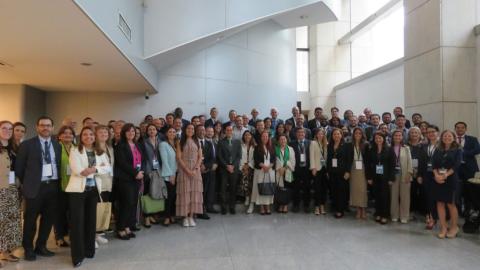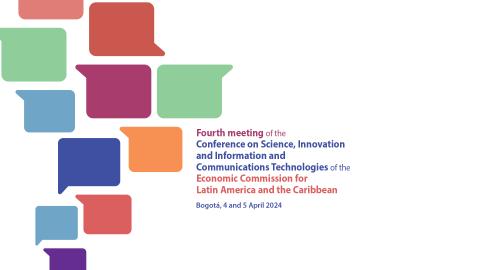News
At the Santiago headquarters of the Senate of the Republic of Chile took place today the meeting The Future Challenges in Science and Technology in Latin America: The role of the members of Congress, organized by ECLAC and the Commission Desafíos del Futuro of the Chilean Senate, with the support of the German Agency for International Cooperation (GIZ).
The event was inaugurated by the Vice President of the Chilean Senate, Eugenio Tuma, the Deputy Executive Secretary of ECLAC, Antonio Prado, and the President of the Commission Desafíos del Futuro, senator Guido Girardi. The meeting was attended by members of the Parliament of Argentina, Bolivia, Brazil, Colombia, Chile, Ecuador, El Salvador, Mexico, Nicaragua, Paraguay and Dominican Republic, as well as observers of institutions specialized in science and technology, research centers and academic authorities. The discussion panels focused on science, technology and innovation challenges for Latin America, as well as spaces for regional cooperation in this matter.
In his opening remarks, Eugenio Tuma said that science and technology are engines for development, and stressed that there are multiple challenges in this area, requiring a constant and fluent dialogue with the scientific community, as well as a space of discussion on science and policy that encourages congressmen and women to build proposals to deal with the changes that society is experiencing. "Dialogue between science and politics strengthens democracy," he said.
Antonio Prado stressed the need of an "urgent incorporation of science and technology in the countries of the region", highlighting the importance of the role that the members of Parliament have in this area. ECLAC Deputy Executive Secretary said that in few areas as in the impulse of science and technology the veracity of ECLAC's maxim, promoted in recent years, is so evident: Growth needs equality and equality needs growth. One of the way do so is accelerating the convergence of productivities with developed countries, which requires moving towards knowledge-intensive productive structures, i.e. a process of structural change. This, since the region has a weak capital accumulation in innovation: In 2010, this amounted to 12.6% of GDP, whereas in OECD countries it was 30.1%. There is also a low investment in I&D. This variable, which explains 38% of innovation capital in OECD countries only represents 9% in Latin America. Other variables in which the region lags are patents and specialization in engineering activities.
Senator Girardi remarks ended the inauguration ceremony. He said that the world faces in the 21st century many changes: In this new century, Internet democratizes dialogues and forms planetary citizens, which represents new challenges for legislators. He stressed that the world is changing into one that is collaborative, networked, which is not only the world of financial capital, but also of content and innovation. This is why the region countries should focus on a smart specialization, favoring the entire society, while investing in science and joining efforts both inter and intra-regional.



